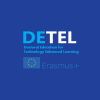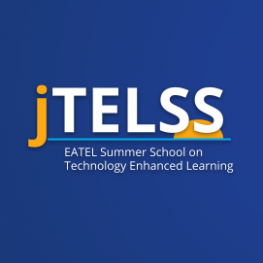Speakers
Ekaterina Prasolova-Førland
Norwegian University of Science and Technology, NorwayRalf Klamma
RWTH Aachen University, GermanyMikhail Fominykh
Norwegian University of Science and Technology, NorwayStart
24/05/2022 - 21:00
End
24/05/2022 - 22:30
eXtended Reality for Technology-Enhanced Learning
Tuesday 24/05 21:00-22:30h
Outdoor Area A
This session is organized by the DETEL Erasmus+ project. 
DETEL is a strategic partnership among nine European universities and EATEL to reflect their expertise in doctoral education into a new study program in TEL, extended with rich and professionally produced OERs.
Abstract
The core drive of technology-enhanced learning (TEL) research is to leverage emerging technologies to improve educational practices both in academic and industrial domains. New opportunities in this research field emerge with the release of advanced eXtended reality technologies like the Microsoft HoloLens or software libraries like ARCore and ARKit. eXtended reality provides benefits for learning with 3D content. Current research about mixed reality learning explores the benefits and integration methods that eXtended reality can deliver for education. This includes utilizing the ability to convey information with depth perception, add virtual guidance and connect practical activities with theoretical information using virtual overlays.
Needs Analysis
This workshop responds to the growing interest in eXtended reality technologies in the TEL research community and among the practitioners in education. These technologies are often considered advanced, because they require specialized and expensive hardware. At the same time, in the recent 2-3 years, eXtended reality hardware became much more accessible. This workshop will give the participants an opportunity to try various devices, different educational applications, and together discuss use cases, challenges, and research directions.
Learning Objectives
After the course, participant PhD students will…
- Know what eXtended reality is
- Have hands-on experience of advanced and basic AR and VR hardware
- Understand the benefits and opportunities for using eXtended reality in learning applications
- Be aware of the current research challenges and opportunities
Pre-activities
No pre-activities are planned in this workshop.
Session Description
At this workshop, we will organize an informal discussion around a round table with multiple AR and VR hardware, taking turns trying the devices and apps. We will apply hygiene measures, wiping each device after each use.
Post-activities
We will provide materials on the topic of eXtended reality in technology-enhanced learning.



